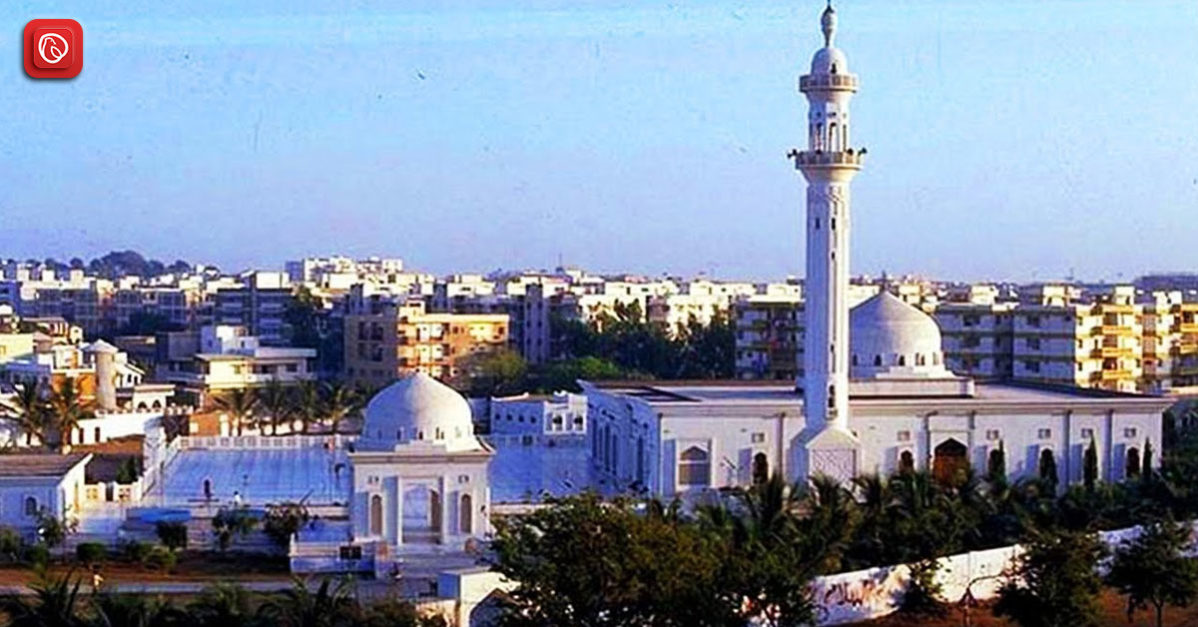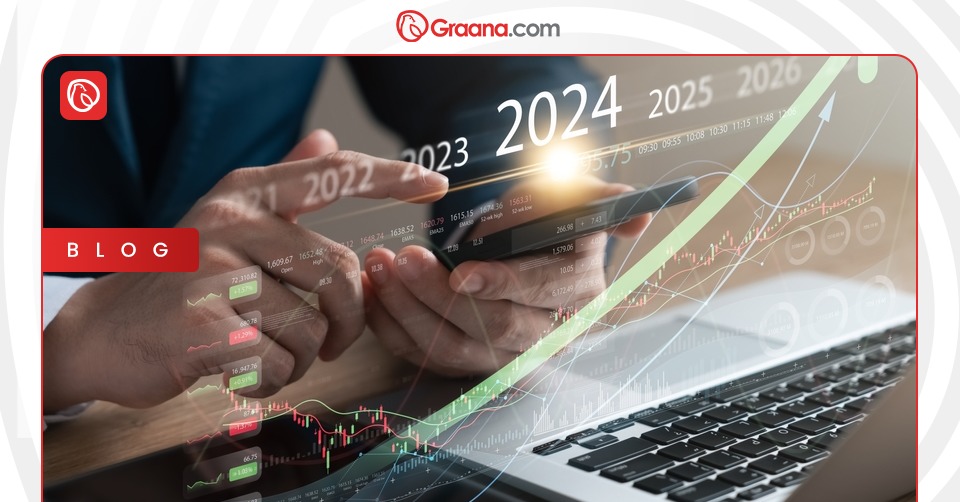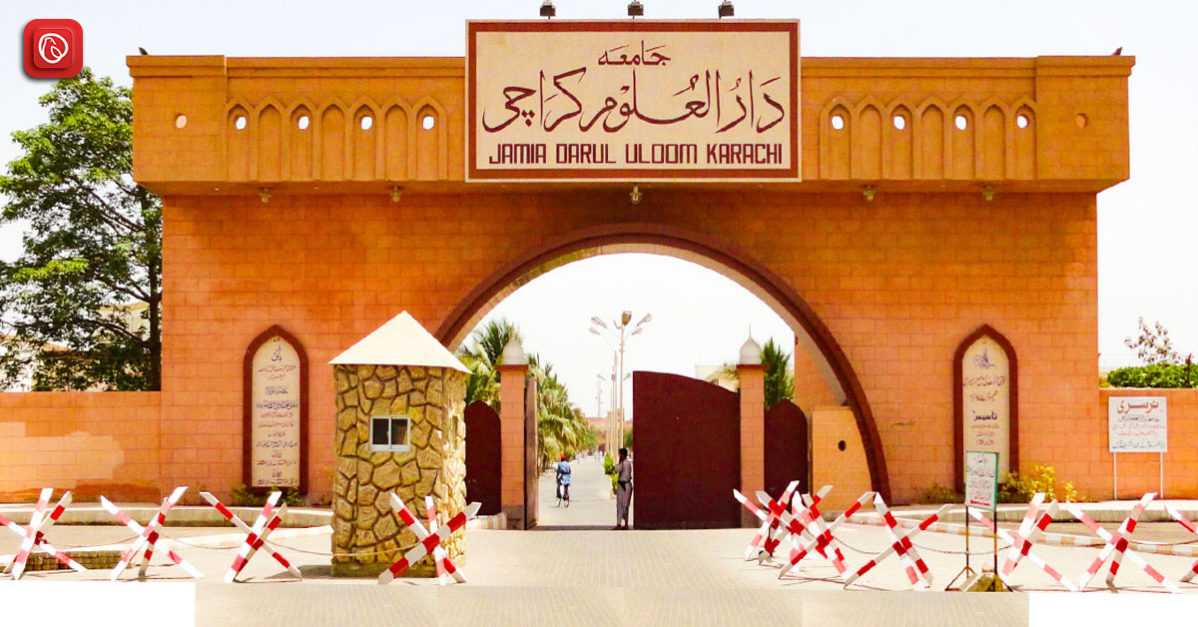Located in the bustling area of Gulshan Iqbal, Karachi, Baitul Mukarram Masjid stands as a prominent centre of Islamic learning and economic thought. Headed by the distinguished Mufti e Azam M. Taqi Usmani, this masjid is not only a place of worship but also a hub for students and scholars who seek to deepen their understanding of Islam and its application in the contemporary world.
In this blog Graana.com will explore the history, significance, and multifaceted role of Baitul Mukarram Masjid in promoting Islamic education and economics.
History and Establishment
Baitul Mukarram Masjid was established with the vision of creating a comprehensive Islamic centre that would cater to the spiritual and educational needs of the Muslim community in Karachi.
The masjid’s foundation was laid with the support of local philanthropists and Islamic scholars who envisioned a place where traditional Islamic teachings could be integrated with modern education. Over the years, it has evolved into a vibrant institution that attracts students from various parts of the city and beyond.
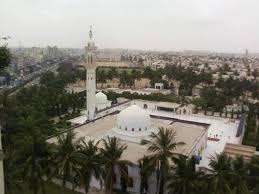
Architectural Marvel
The architecture of the Masjid is a blend of traditional Islamic and contemporary designs. The grand structure features a spacious prayer hall, adorned with intricate calligraphy and geometric patterns that reflect the rich heritage of Islamic art.
The serene courtyard, flanked by lush gardens, provides a tranquil environment for worshippers and students alike. The masjid’s minarets, towering over the surrounding buildings, serve as a symbol of Islamic identity and pride in the region.
The leadership of Mufti e Azam M. Taqi Usmani
Mufti M. Taqi Usmani, a renowned Islamic scholar and jurist, has been at the helm of Baitul Mukarram Masjid for several years. His leadership has been instrumental in shaping the masjid’s educational programmes and initiatives.
Mufti Usmani’s extensive knowledge in Islamic jurisprudence and economics has made him a respected figure in the Muslim world. Under his guidance, the Masjid has become a centre for scholarly research and discussions on various aspects of Islam, particularly Islamic finance and economics.
Centre for Islamic Economics
One of the key areas of focus at Baitul Mukarram Masjid is Islamic economics. The masjid hosts regular seminars, workshops, and lectures on topics related to Islamic finance, banking, and economic systems. These events are aimed at educating both students and professionals about the principles of Islamic economics and their practical applications in today’s world.
The masjid’s library is well-stocked with books and research materials on these subjects, providing a valuable resource for those who wish to delve deeper into the field.
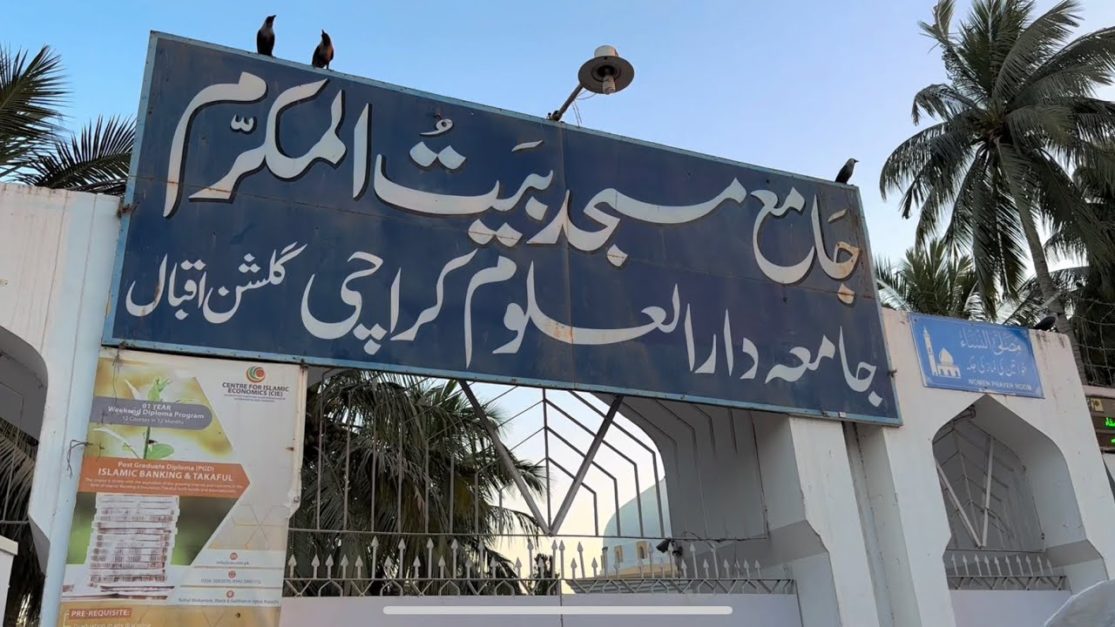
Educational Programmes and Courses
Baitul Mukarram Masjid offers a range of educational programmes and courses designed to cater to different age groups and levels of knowledge. These include:
- Quranic Studies: Comprehensive courses on the recitation, memorisation, and interpretation of the Quran.
- Hadith Studies: In-depth studies of the sayings and traditions of Prophet Muhammad (PBUH).
- Fiqh (Islamic Jurisprudence): Detailed courses on Islamic law and its application in various aspects of life.
- Arabic Language: Courses aimed at teaching the Arabic language to non-native speakers, with a focus on understanding the Quran and Hadith.
- Islamic Finance: Specialised courses on Islamic banking, finance, and economic systems.
These programmes are conducted by experienced teachers and scholars, ensuring that students receive high-quality education and training.
Community Services and Outreach
Beyond its educational initiatives, Baitul Mukarram Masjid is actively involved in community services and outreach programmes. The masjid organises regular charity drives, medical camps, and social welfare activities to support the underprivileged sections of society.
It also provides counselling and support services to individuals and families facing various challenges. These efforts reflect the masjid’s commitment to serving the community and promoting the values of compassion and social justice.
Student Life and Experience
Students at the Masjid experience a holistic learning environment that nurtures their spiritual, intellectual, and personal growth. The masjid’s serene atmosphere, coupled with its rigorous academic programmes, creates an ideal setting for students to immerse themselves in their studies. The close-knit community of students and teachers fosters a sense of camaraderie and mutual support, enhancing the overall learning experience.
Role in Promoting Interfaith Dialogue
In addition to its focus on Islamic education, Baitul Mukarram Masjid plays a significant role in promoting interfaith dialogue and understanding. The masjid regularly hosts events and discussions that bring together people of different faiths to explore common values and address shared concerns.
These initiatives are aimed at fostering mutual respect and harmony among diverse communities, contributing to a more inclusive and peaceful society.
Future Plans and Developments
Looking ahead, the Masjid has ambitious plans to expand its facilities and programmes. This includes the construction of a new educational complex that will house additional classrooms, lecture halls, and a state-of-the-art library.
The masjid also plans to introduce new courses and programmes in emerging fields of Islamic studies and economics. These developments, aimed at enhancing the masjid’s capacity to serve the community and provide high-quality education and training.
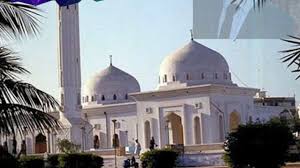
Conclusion
Baitul Mukarram Masjid in Gulshan Iqbal, Karachi, stands as a beacon of Islamic learning and economic thought. Under the leadership of Mufti M. Taqi Usmani, the masjid has made significant contributions to the fields of Islamic education and economics.
Its comprehensive programmes, community services, and interfaith initiatives reflect its commitment to promoting the values of Islam and serving the broader community. As it continues to grow and evolve, the Masjid remains a vital institution for those seeking to deepen their understanding of Islam and its application in the contemporary world.
Frequently Asked Questions
Related FAQs include:
1. What educational programmes does Baitul Mukarram Masjid offer?
The Masjid offers a range of educational programmes including Quranic studies, Hadith studies, Fiqh, Arabic language courses, and specialised courses in Islamic finance and economics.
2. Who is the current head of Baitul Mukarram Masjid?
The current head of Baitul Mukarram Masjid is Mufti e Azam M. Taqi Usmani, a renowned Islamic scholar and jurist.
3. What role does Baitul Mukarram Masjid play in promoting Islamic economics?
The Masjid hosts seminars, workshops, and lectures on Islamic finance and economics, providing education and resources to students and professionals in this field.
4. How does Baitul Mukarram Masjid contribute to community services?
The masjid organises charity drives, medical camps, social welfare activities. And provides counselling and support services to individuals and families in need.
5. What are the future plans of Baitul Mukarram Masjid?
The future plans include the construction of a new educational complex. Introduction of new courses and programmes, and expansion of its facilities to better serve the community and enhance educational offerings.
For more updates, visit Graana blog.
